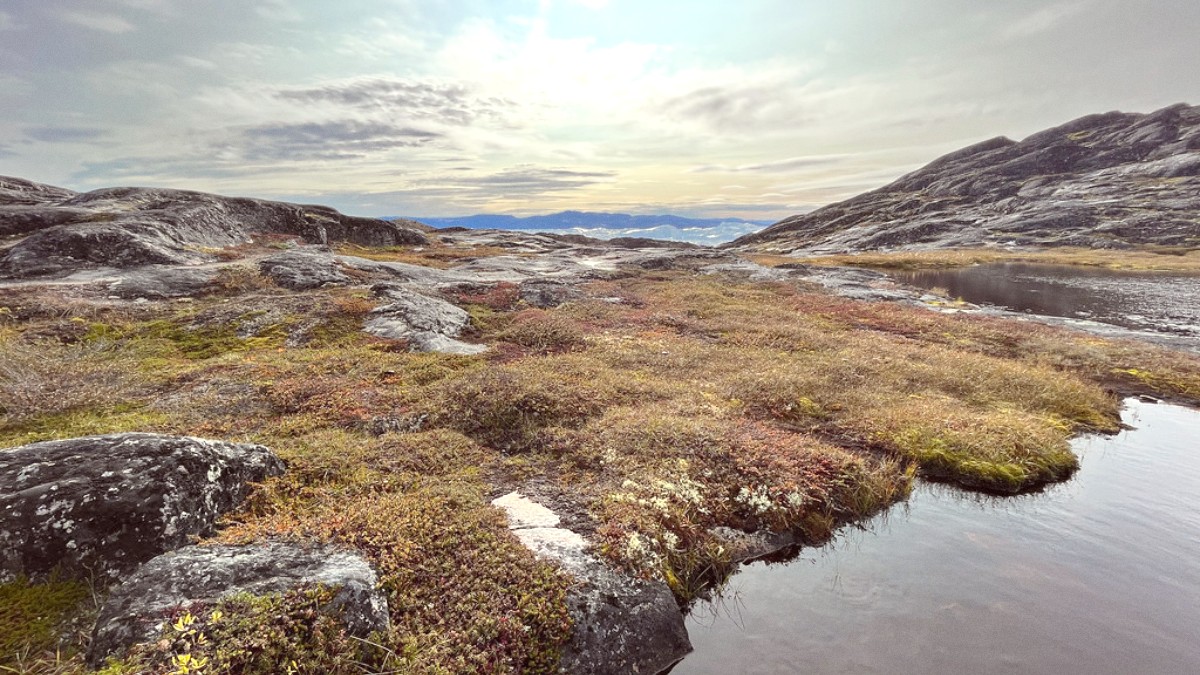
Greenland
Ilulissat experiences an Arctic climate with cold winters and cool, short summers. The Ilulissat Icefjord significantly influences local weather, bringing fog in summer and contributing to colder temperatures.
Summer (June-August) temperatures range from 5°C to 10°C (41°F to 50°F), with moderate precipitation. The midnight sun offers 24 hours of daylight.
Wind chill makes temperatures feel much colder. Weather can change quickly, so be ready for all conditions. Winter roads are icy and snow-covered. Fog is common in summer near the Icefjord.
Plan your visit based on the experiences you prioritize, whether it is midnight sun cruises or Northern Lights hunts.
Extreme cold, limited daylight
Best for Northern Lights, traditional Arctic activities like dog sledding. Lower prices possible.
Very cold, very short daylight, facility closures, weather-related travel disruptions.
Fewer tourists, changing conditions
Fewer tourists, lower prices, aurora viewing begins (Sep-Oct), unique dynamic landscape in May.
Unpredictable weather, limited tour schedules, colder temperatures.
Best weather, peak activities
Best weather for outdoor activities, peak whale watching, accessible hiking trails, midnight sun.
Higher prices, more tourists, advance booking necessary.
Greenland is part of the Kingdom of Denmark. It is not part of the Schengen Area, but Danish visa rules generally apply. Most visitors do not need a separate visa if they hold a valid Schengen visa or are visa-exempt for Denmark.
A passport valid for at least three months beyond your departure and issued within the last 10 years. A printed copy of your approved visa (if your nationality needs one). Proof of return or onward travel and sufficient funds. Accommodation booking confirmations.
No visa needed; valid passport or national ID card enough.
No visa needed for stays up to 90 days (e.g., USA, Canada, Australia, UK, Japan, New Zealand).
A visa specifically for Greenland, often a Schengen visa with an endorsement "valid for Greenland." Apply through a Danish embassy.
No general entry fees for tourists.
Not needed for typical tourist activities. For specific activities like scientific expeditions, consult Danish Immigration Service.
Greenland is known for its high cost of living and travel, due to its remote location and import logistics. Careful budgeting makes money management effective.
The official currency is the Danish Krone (DKK). Major credit cards (Visa, Mastercard) are widely accepted. ATMs are available for DKK withdrawals. Carrying some cash for smaller purchases is advisable.
Tipping is not customary in Greenland; service charges are usually included. A small gratuity for truly exceptional service is appreciated but not expected.
General guide for individual item costs.
Greenland has a very low crime rate and is considered safe for tourists. Still, awareness of local conditions, especially related to weather and nature, is important.
Hypothermia and frostbite are risks. Dress in multiple layers, wear a warm hat, insulated gloves, and proper winter boots.
UV radiation can be strong. Use high-SPF sunscreen and wear quality sunglasses or ski goggles.
Boat tours can cause motion sickness. Consider bringing medication and take it before boarding.
Ilulissat has a small hospital (Ilulissat Hospital) offering basic medical care.
Facilities are limited. For serious conditions, evacuation to Nuuk or Copenhagen may be necessary. Pharmacies are available for basic medications.
Emergency services (police, fire, ambulance) are available by dialing 112.
Tap water is safe to drink. Food hygiene standards are generally high.
Ilulissat has a very low crime rate. It is a very safe destination for tourists. Violent crime is rare.
Blizzards, strong winds, and extreme cold in winter can cause travel delays. Check forecasts.
Walking paths and roads can be very slippery. Wear appropriate footwear with good grip. Keep a safe distance from icebergs.
Carry this information with you at all times. Make physical and digital copies of important documents.
Costs vary greatly based on travel style.
DKK 2,500-5,000+ for premium hotels or suites.
DKK 800-1,500+ for fine dining experiences.
DKK 2,500-7,000+ for exclusive or private tours.